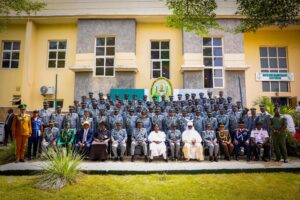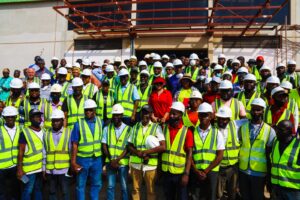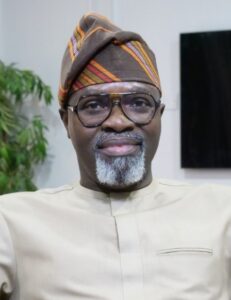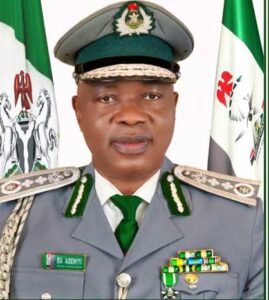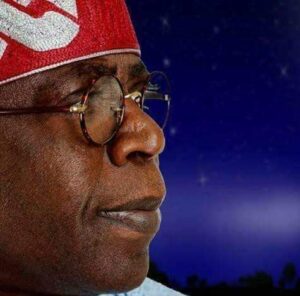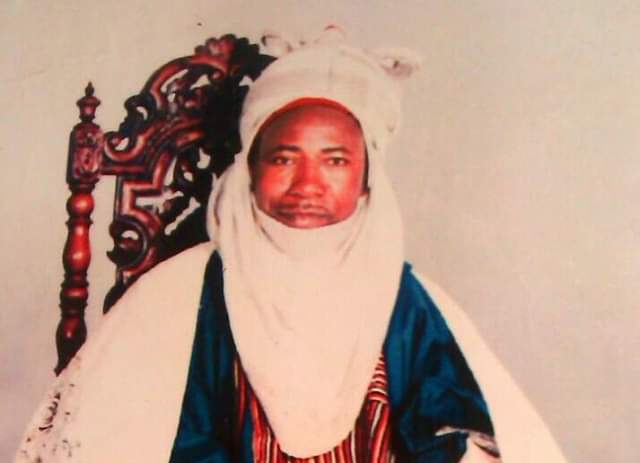
On Monday, at a special sitting of the Kano executive council chaired by Abdullahi Ganduje, governor of the state, the removal of Muhammadu Sanusi II was announced. The announcement came 10 months after TheCable reported how the governor relaunched moves to dethrone the emir. One of such moves was the reopening of an investigation by the Kano State Public Complaints and Anti-corruption Commission into the expenditure of the state emirate council under Sanusi II.
But it appears history is repeating itself as Sanusi II’s grandfather, Muhammadu Sanusi I, was deposed as the 11th emir of Kano 57 years ago by the then northern Nigeria regional government led by Ahamdu Bello, the late sarduana of Sokoto.
HOW SANUSI’S GRANDFATHER WAS DEPOSED
Sanusi I replaced Abdullahi Bayero, the 10th emir of Kano, who died on December 23, 1953. Prior to this appointment, he worked as a senior councilor of the emirate council where he controlled the administration of the emirate, as the sole native authority for over a decade. Palace officials reported that the late emir had a special relationship with the emerging western educated elite where he brought many of them into the services of the native authority.
Upon his emergence as emir, he played key roles in the major shift in elite configuration in the state. He was also instrumental in the formation of the Northern Peoples Congress (NPC), where he brought many groups into the NPC. Indeed, Sanusi I was charismatic, politically sound and influential in the northern region. He stood firmly against injustice and oppression, seizing moments to condemn any of such acts.
However, trouble began when most of the senior members of the NPC in Kaduna resented his influence. This resentment led to the instituting of a commission of inquiry into the finances of the Kano native authority under Sanusi. A probe panel was set up and members of the native authority testified before D. J. M. Muffet, the sole commissioner. The panel recommended the resignation of the emir and the regional government implemented the recommendation, thereby requesting Sanusi I to resign. With little or no restraint, the late emir tendered his resignation to Kashim Ibrahim, the then governor of the northern region on March 28, 1963.
Sanusi I went into exile at Azare, a city in Bauchi state, where he kept a low profile. He spent 20 years in exile before returning to Wudil state, Kano, where he died. He was replaced by his brother, Muhammadu Inuwa, the 12th emir of Kano, whose tenure only lasted for six months. Inuwa was succeeded by late Ado Bayero, who spent 51 years on the throne before he died. In 2014, Rabiu Kwankwaso, former governor of the state, appointed Sanusi II as the 14th emir of Kano.
LIKE HIS GRANDFATHER, SANUSI II CONDEMNED POOR PRACTICES IN THE NORTH
In 2017, at the Mo Ibrahim governance weekend, Sanusi had said in Morocco, that governors want traditional rulers to fight violence but not question their inaction, which caused violence in the first place. In the video, Sanusi said some “three to five million children out of school” yet the northern governor still goes to China to get $2bn loan to build light rails — instead of schools.
LIKE SANUSI I, KANO ANTI-GRAFT AGENCY RECOMMENDED SUSPENSION OF SANUSI II
Like the recommendation against Sanusi’s grandfather, in June 2019, the Kano anti-graft agency recommended Sanusi’s suspension. The commission said during its investigation, it uncovered that N3.4 billion was misspent by the emirate under Sanusi II. The amount was said to have been misappropriated between 2014 and 2017.
Based on the allegation, the office of the secretary to the state government (SSG) had issued a query to Sanusi on behalf of Ganduje, and recommended his suspension.
In March 2020, the commission had also accused the emir of engaging in land racketeering. It said Sanusi allegedly ordered the illegal sale of several hectares of land and that “proceeds of the sales remitted to the emirate council bank account can be traced to the companies of interest to His Highness”.






